Lady Bans Close Friend From Bringing Destructive Dog To Her House, Gets Tagged Bad Friend
The most frequent grievance expressed by pet owners is that their dogs might be unruly or destructive when left unattended. Their dogs may urinate, spit, howl, bark, chew, dig, or attempt to flee.
These issues might be signs of distress, even though they frequently suggest that a dog needs to learn good manners. The presence of additional distress behaviors, in addition to difficulties, does not necessarily indicate that the dog is unaware of which toys are safe for him to chew on.
Rather, these are signs of separation anxiety in the dog. A dog that is extremely devoted to its owner may experience separation anxiety as a result of extreme stress when left alone.
It's a severe ailment and a major cause of owners losing patience with their dogs and giving them up. However, there are numerous ways you can assist, but OP's close friend, Emily, wasn't willing to give it a try.
Emily's dog has separation anxiety and becomes very anxious and destructive when left alone, even for a few minutes. Whenever Emily brings her dog over to the OP's house, it ends up being very chaotic.
Her dog constantly whines, scratches at doors, and has even chewed up some of the OP's furniture. The OP tried to be understanding, but it's becoming too much to handle.
They decided to take action, but their best friend chose to withdraw instead.
Here's the headline

The OP kicks off her story
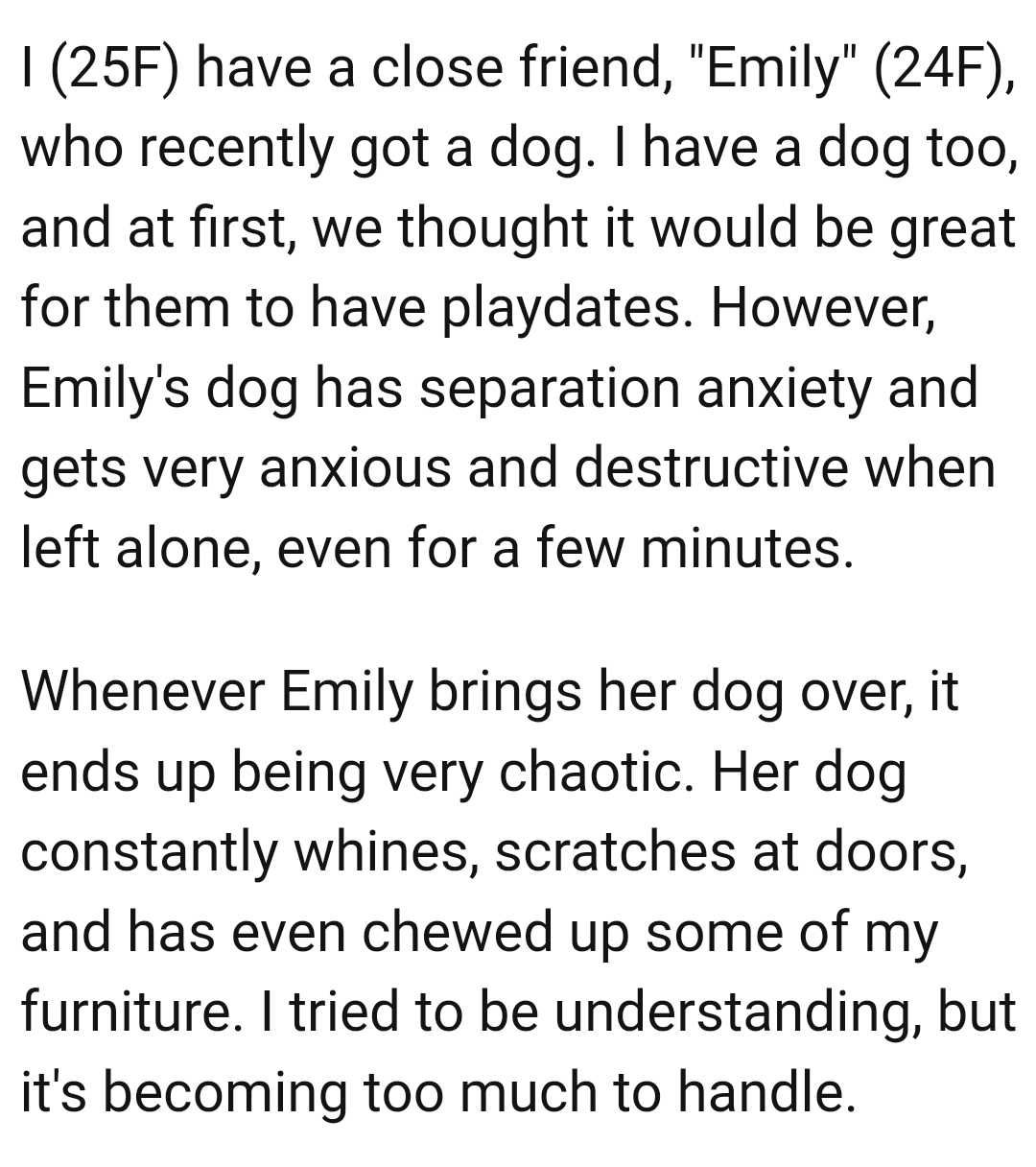
The Role of Boundaries in Friendships
Dr. James Harrison, a social psychologist at Duke University, emphasizes that establishing boundaries is crucial in maintaining healthy friendships.
Research indicates that friends who respect each other’s boundaries tend to enjoy more satisfying and stable relationships.
In this case, the decision to ban the destructive dog reflects a need to protect one's personal space and well-being, which is a valid concern.
OP told Emily she can't bring her dog over anymore until the behavior is under control
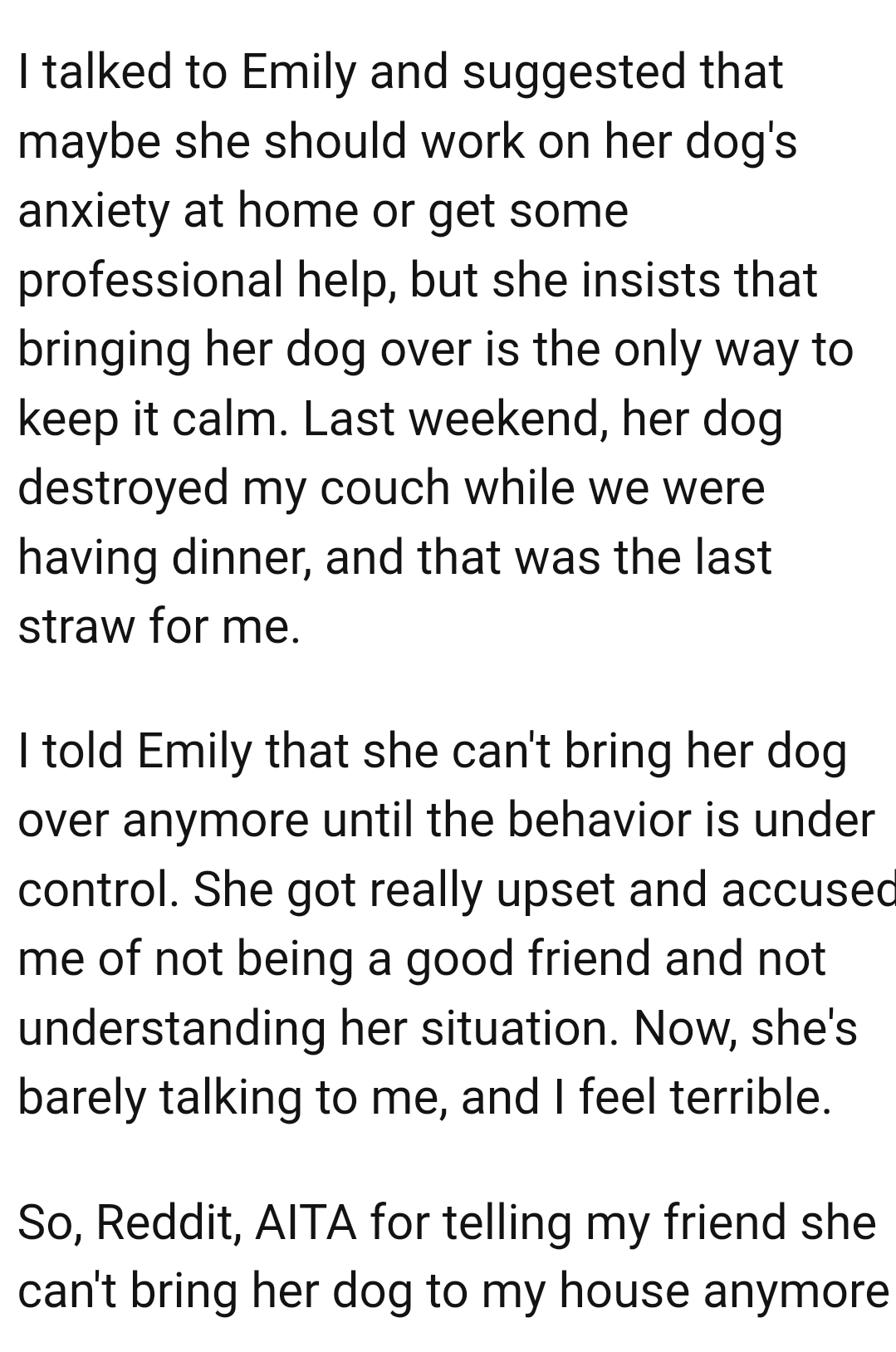
And the comments roll in...
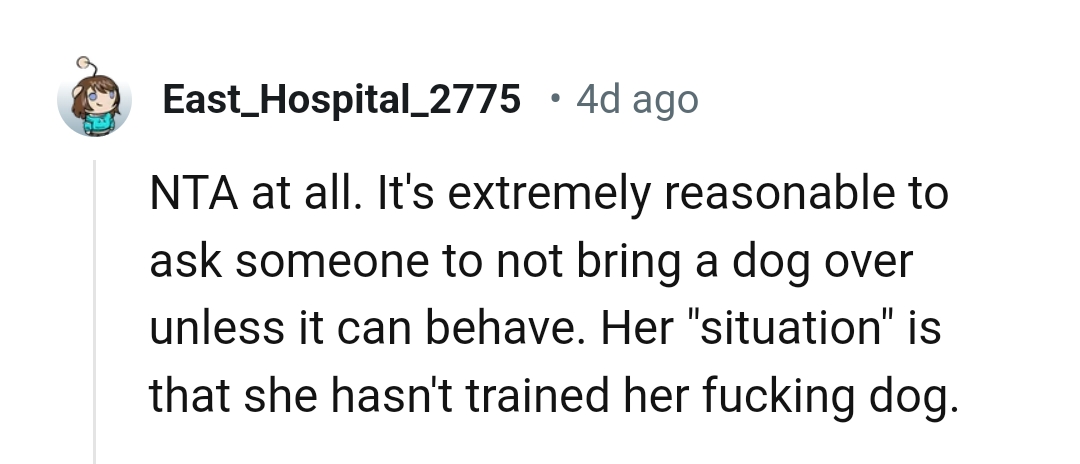
OP has offered the following explanation for why they think they might be the AH:
I understand that telling Emily she can't bring her dog over anymore is a strong action that directly affects her. Emily relies on bringing her dog to my house as a way to manage her dog's anxiety, and by cutting off that option, I might be adding to her stress and making her feel unsupported.
I can see why she feels hurt and thinks I'm not being understanding of her situation. This makes me wonder if I'm being too harsh or insensitive to her needs, even though my own belongings and peace of mind are being compromised.
The dog is probably banned elsewhere
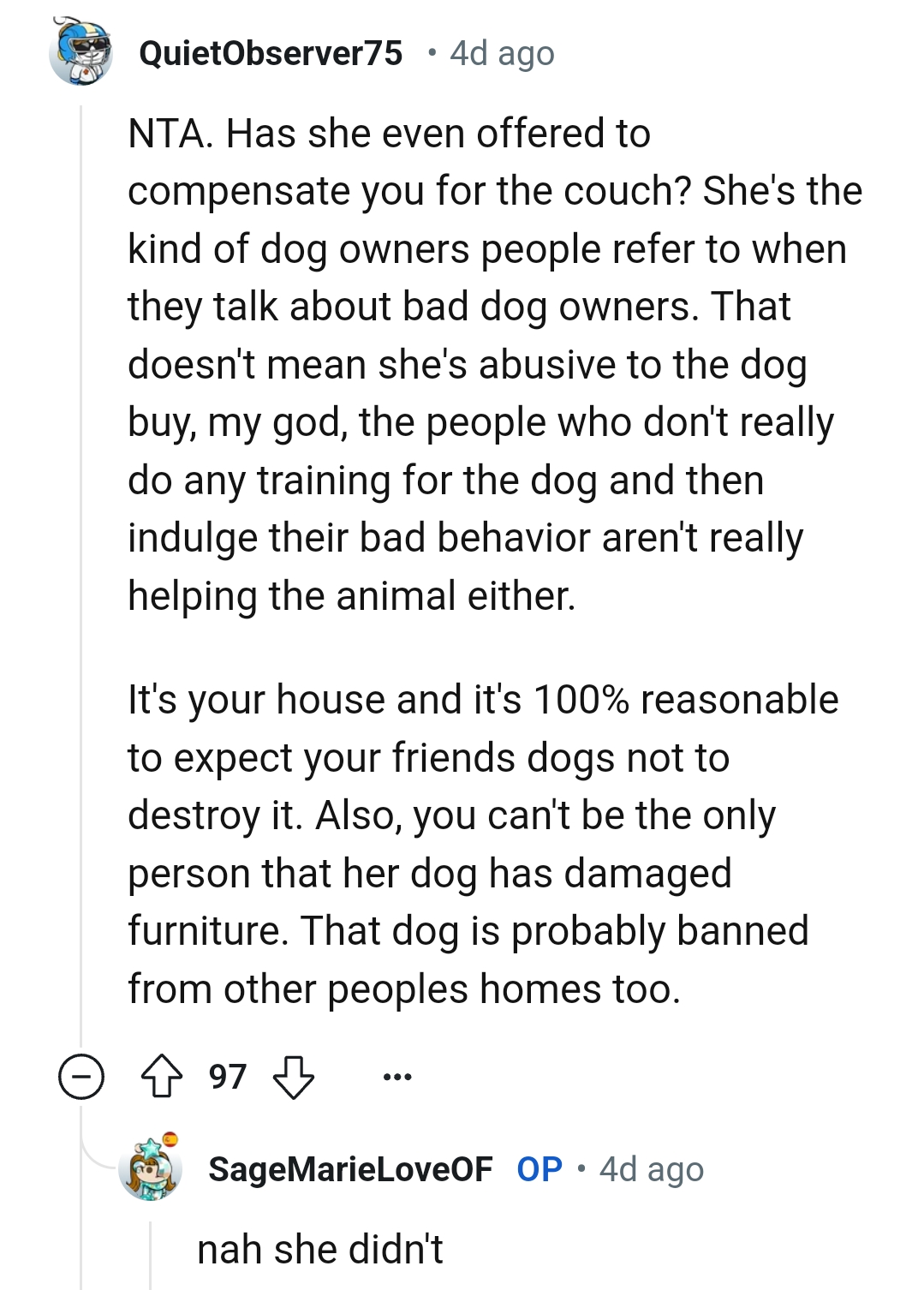
Not letting the dog back in
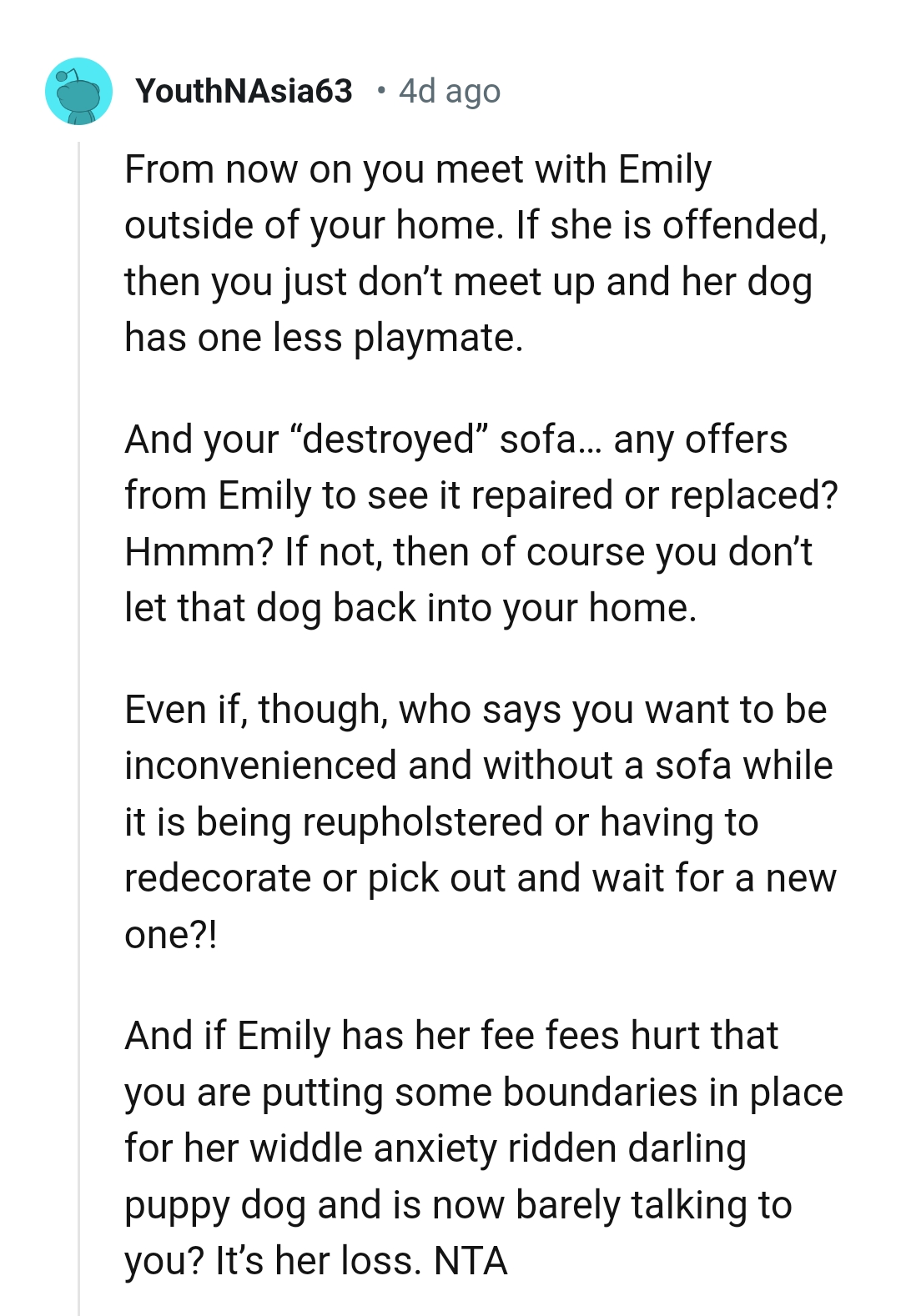
According to a study in the Journal of Social and Personal Relationships, individuals who communicate their boundaries clearly and assertively are more likely to experience positive outcomes in their friendships.
This suggests that setting limits, even in challenging situations, can help prevent feelings of resentment and misunderstanding.
Encouraging open discussions about boundaries can lead to healthier interactions between friends.
This Redditor just wants to know

Meeting in a secure field
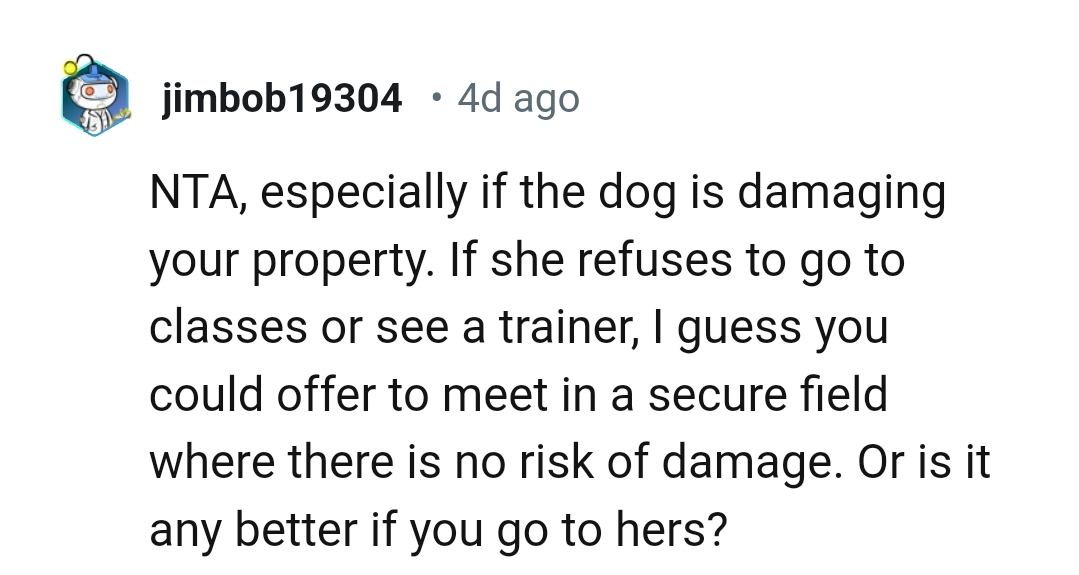
Understanding Emotional Responses to Boundaries
Research shows that emotional responses to boundary-setting can lead to feelings of guilt or fear of rejection.
Dr. Ellen Carter from the University of Pennsylvania explains that these emotional responses often stem from a fear of conflict or damaging the relationship.
However, it's essential to understand that setting boundaries is not only healthy but necessary for sustaining any relationship.
It's very selfish of OP's close friend
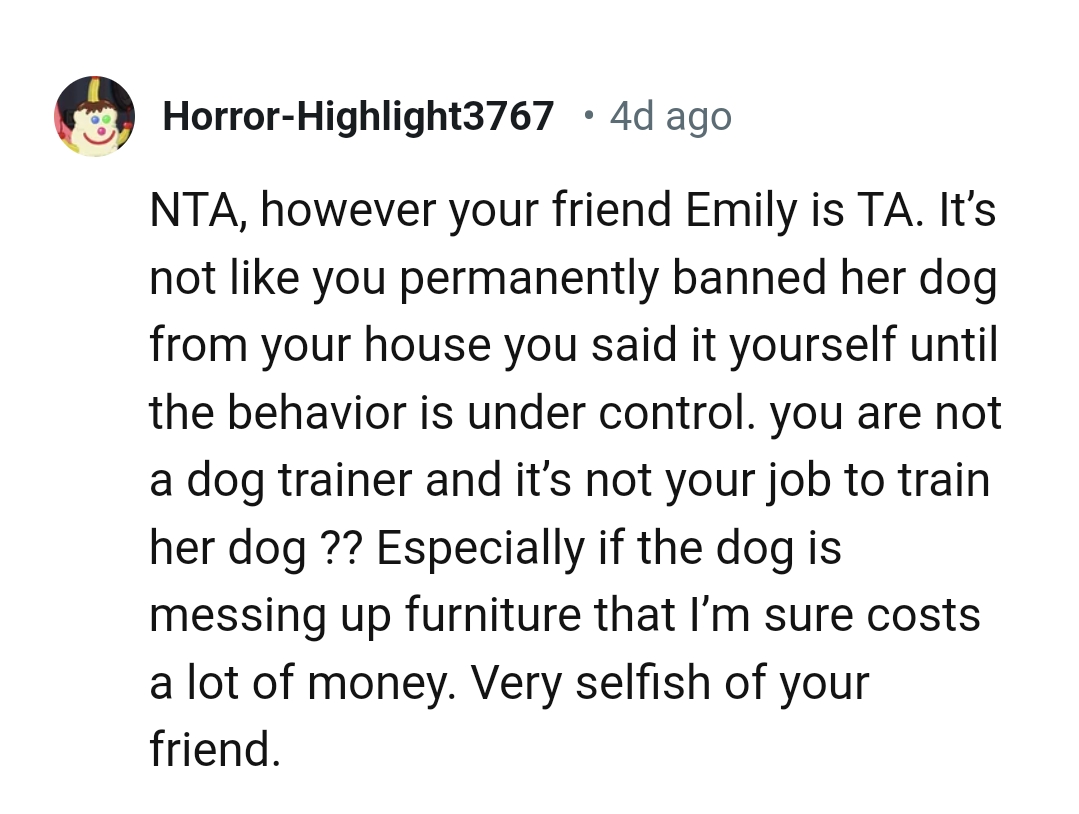
Emily needs to join reality
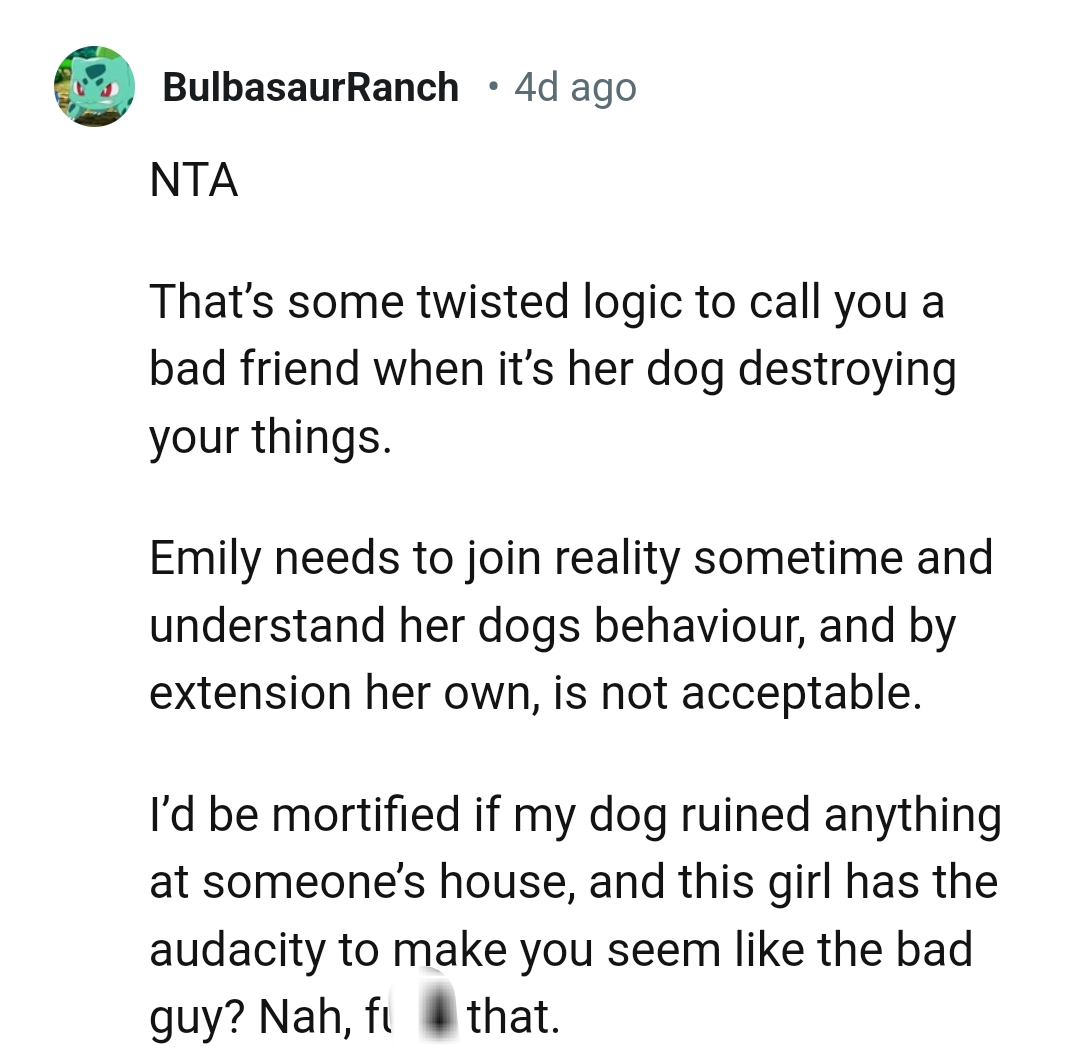
Many Redditors couldn't see the need to bring the dog if it was going to be alone, or was the dog still ruining the couch with Emily being present? Because if he's acting that way while she's around, it's definitely not separation anxiety.
Maybe visits should only take place at Emily's house if she wants the OP to be more accommodating. The OP was declared not the AH, as Emily is acting poorly both as a friend and a dog owner.
The dog is being destructive

Psychological Analysis
This situation highlights a common issue in friendships where individuals struggle with boundary setting. It's essential for friends to understand that establishing limits is a key aspect of maintaining healthy relationships and should be approached with care and mutual respect.
Analysis generated by AI
Analysis & Alternative Approaches
In conclusion, navigating friendship dynamics requires a clear understanding of personal boundaries.
As noted by Dr. Esther Perel, a renowned couples therapist, "Boundaries are the invisible lines that protect our personal space and emotional well-being." Fostering open communication about boundaries can enhance the quality of friendships.
By setting and respecting these boundaries, friends can create healthier, more supportive relationships.
Moreover, studies suggest that friends who engage in boundary-setting discussions enhance their emotional intelligence and mutual respect.
Practicing assertive communication can empower individuals to express their needs without feeling guilty, promoting healthier friendships.
Establishing a culture of respect regarding personal boundaries can lead to more fulfilling relationships.
Strategies for Healthy Friendship Dynamics
This situation underscores the importance of developing strategies for maintaining healthy boundaries in friendships.
Research indicates that friends should regularly check in with each other about comfort levels regarding shared spaces and activities.
Encouraging open dialogue about each person's needs can foster a sense of understanding and cooperation.



